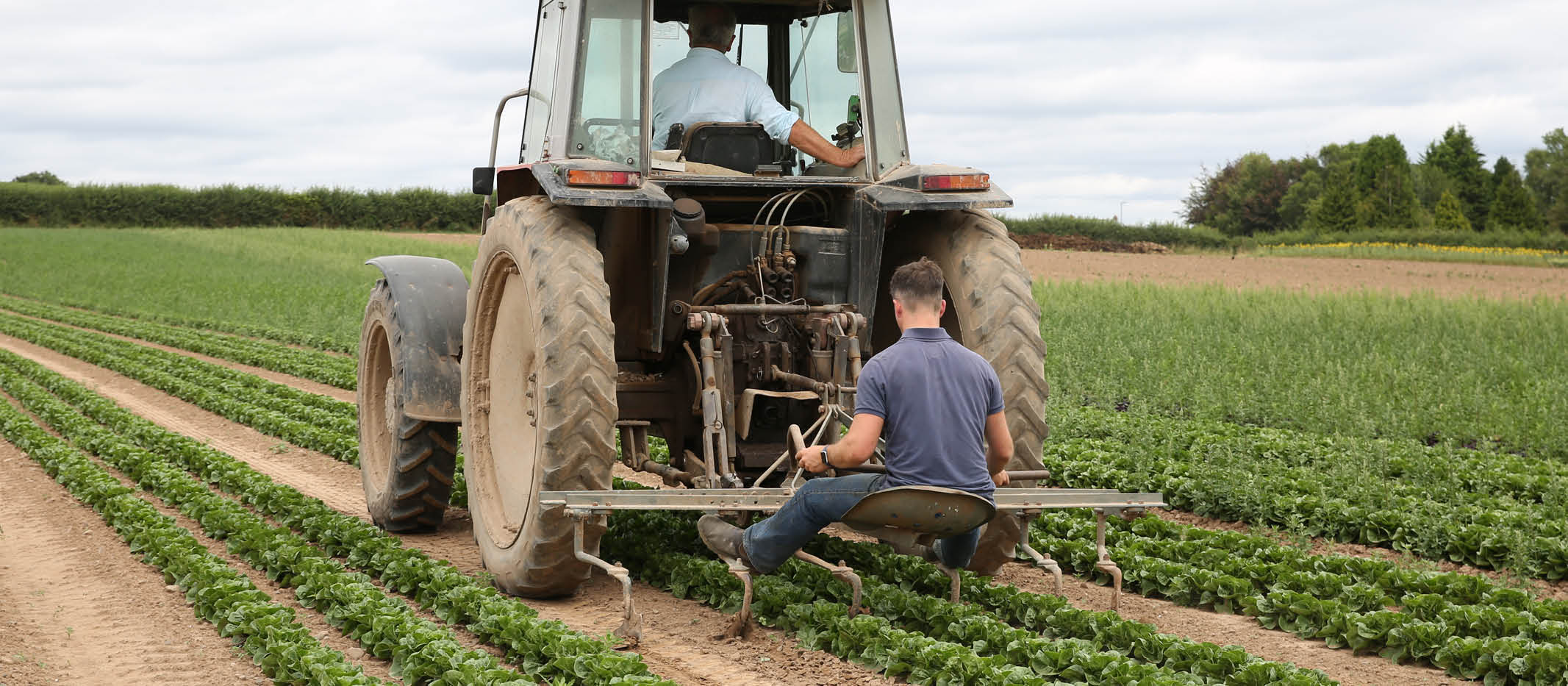Paying and Treating our Farmers Fairly

The challenges facing farmers
Farming is a rewarding but incredibly demanding livelihood. Inclement weather, poor harvests and pests have always posed a challenge, but in recent years, the severity and breadth of these issues has dramatically increased. Labour shortages, rising energy prices, and competitive supermarket pricing are just some of the issues making it difficult for farmers to make ends meet. With climate change further impacting harvests and margins, it’s not surprising that many of them are uncertain about their futures.
The transaction has to work for everyone
We’ve worked directly with farmers since day one, building long-lasting partnerships (some measured in decades) and providing them with support in a variety of ways.
Our Buying team discuss volumes and prices with our fruit & veg farmers well in advance of harvesting, offering the security that we won’t reject their healthy crops. For our UK farmers, these conversations start before anything’s been planted. Every partnership has different requirements, and we’ll take a variety of factors into account when we make these agreements, such as crop losses from the previous year, or the labour requirements to grow and harvest a particular product. Conventional intensive farming typically uses chemical inputs to reduce labour, but organic farms do things differently. They’re more labour intensive, and wages make up most of the cost of growing and harvesting organic produce.
Given the turbulent cost of resources in recent years, such as feed, labour and energy, we also factor data from independent trackers that monitor prices of these inputs into our discussions for some farmers. This ensures that the costs of production are met by our agreed prices, and no one is left out of pocket.
We have our own in-house agronomist, who can help our farmers through challenges such as poor crop performance or pests. Our Buyers also talk to our famers every day, so everyone’s informed of unexpected challenges. This level of communication means we can work through problems together, and we’re always flexible on the level of support required.
By matching orders to forecasts as closely as possible, we also help to reduce the overproduction that’s responsible for the huge amounts of food waste often seen at farm level. We’ll be the first to admit we don’t get it spot-on every time, but our efforts go a long way to reducing the greenhouse gas emissions attributed to this ‘farm gate waste’.
We’re a proud Living Wage employer, which means we’re officially committed to ensuring that everyone in our business can earn a wage that meets their everyday needs. But we don’t think our responsibility ends there. Everyone in our supply chains should also be paid fairly for their work, and with farm earnings being squeezed, it’s more important than ever to ensure that everyone who helps feed the nation is paid the equivalent of the Living Wage. We’re not alone in this belief. A poll last year by the Food, Farming and Countryside Commission found that 88% of the public also want to see farmers paid fairly.
Farming is just like any other business in the modern world, in that it needs to make a profit to survive. Paying our farmers a fair price not only provides them with security in the short- and medium-term, but it also means they can invest in the future of their business. This investment includes renewable energy infrastructure and flood protection, and with challenges like climate change worsening, this could prove crucial in securing the resilience of the UK’s food supply.
Published June 2024


